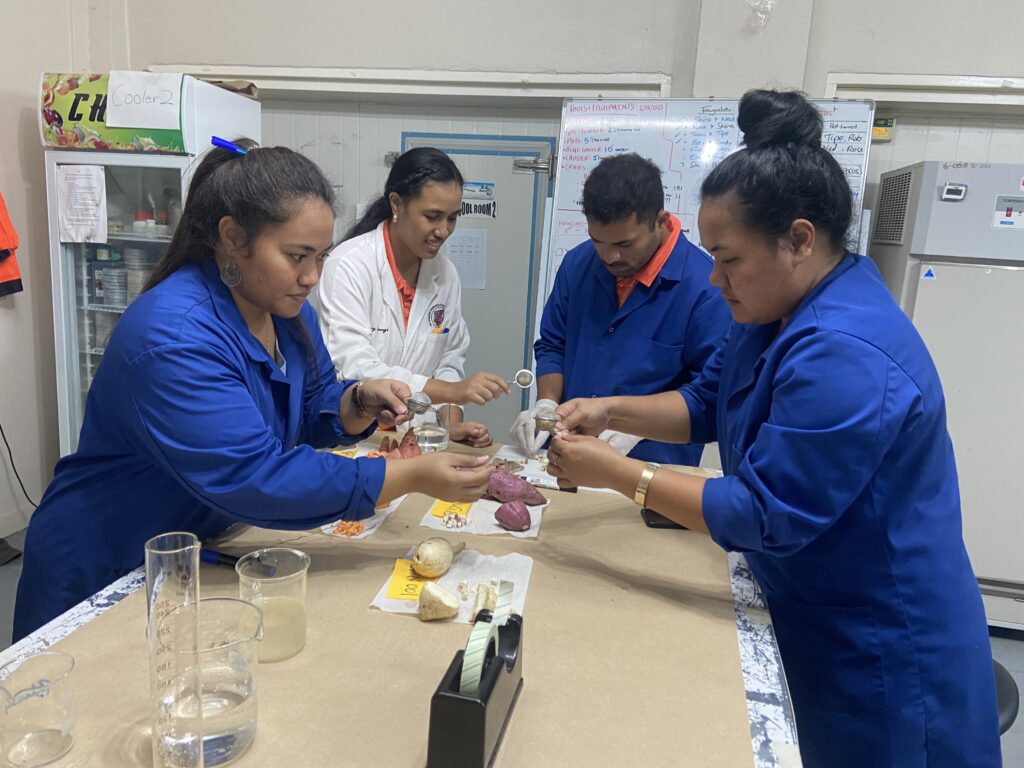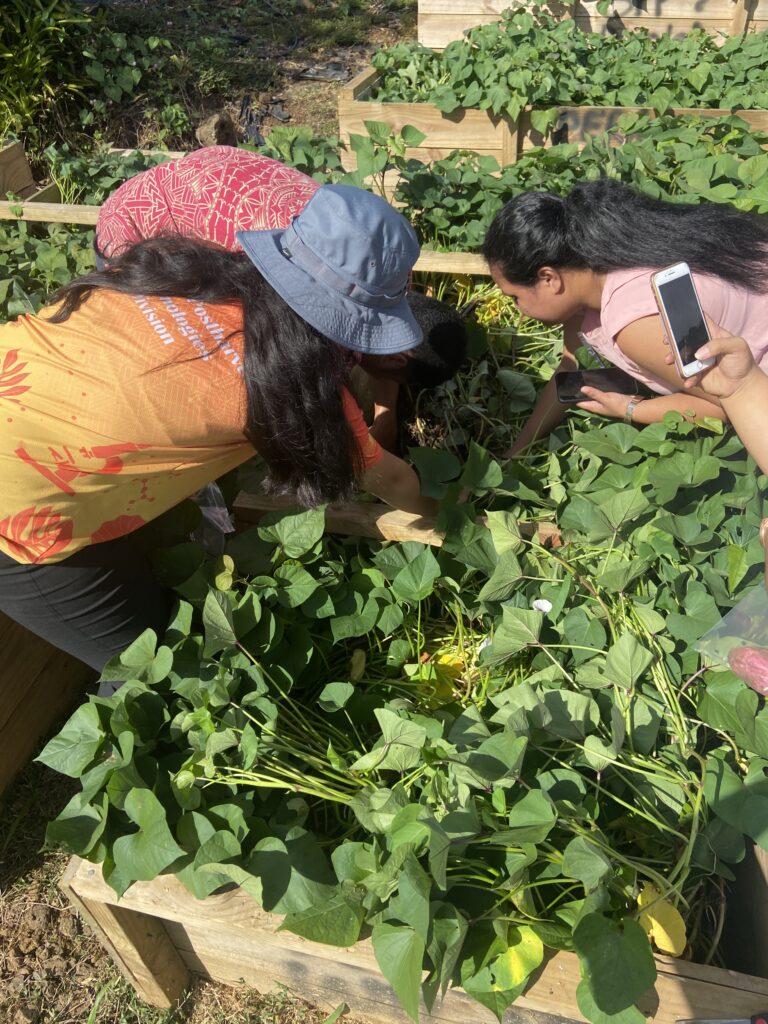

Capacity building in sweet potato production in Samoa
September 23, 2024
The Crawford Fund QLD Committee supports targeted training and mentoring of overseas scientists and extension officers by experienced Queensland counterparts working on similar agricultural research challenges. In 2022, the Committee announced support for Dr Bree Wilson, from the Centre for Crop Health at the University of Southern Queensland to lead training to build the capacity of Samoan scientists in Plant Pathology: Isolation and identification of causative agents of postharvest rots of sweet potatoes.
This research complements an ACIAR pilot project (ACIAR HORT 2018/195) and aimed to provide collaborating Samoan scientists with the skills they need to identify important diseases of sweet potato.


“The consumption and production of sweetpotato in Samoa is growing and this training will contribute to improving food security through new knowledge on diseases in Samoa including a diagnostic protocol and basic disease manual,” said Dr Wilson.
The training of researchers at Scientific Research Organisation of Samoa’s Plant and Postharvest Technologies and Agricultural Research Divisions had theoretical, laboratory and field components focusing on important sweetpotato invertebrate pests and diseases in Australia and the Pacific.
Theoretical content was delivered both from Australia and in-country, with in-country sessions diving deeper into the identification and monitoring of specific pest insects, fungal pathogens, bacterial pathogens and viral/phytoplasma pathogens of sweetpotato.
“The aim of the laboratory work was to gain experience isolating bacteria and fungi from sweetpotato, which may cause disease during plant growth, for example, storage root development as well as being implicated in post-harvested diseases during storage/transport,” she said.
For the preparation of laboratory work, raised garden beds containing various sweetpotato cultivars were examined for the presence of insect pests, and signs of plant disease on the above ground plant parts. The sweetpotato storage roots were also uprooted and examined for signs of disease. Samples of shoot and storage roots were taken to the laboratory for processing.
“The trainees recorded sightings of pest insects/damage and diseases for the sweetpotato plants installed in the nursery beds at SROS. This simple resource and new knowledge puts SROS in a good position to be competitive for future grants in the sweetpotato space, as well as adding value to the existing ACIAR HORT 2018/195 project which aimed to assess sweetpotato farming systems in Samoa and other agronomical aspects of production,” said Dr Wilson.
From all the sweetpotato cultivars/plant parts, tissue was prepared to isolate potential disease-causing bacteria and fungi. These cultures were incubated and where possible, pure cultures were stored in the freezer for future work (DNA extractions and sequencing) to identify the various pathogens.
Field work involved visiting small farms around Apia that were growing sweetpotato on a small scale with some of the researchers, where we examined examples of insect damage, as well as signs and symptoms of plant disease caused by viral and fungal pathogens.
“Although the trainees had experience working on post-harvest diseases (e.g. taro, citrus), they had not worked on sweetpotato and I was able to demonstrate a more thorough method of surface sterilisation of plant tissue. This was important to assess for the outgrowth of bacteria/fungi deep in the tissue to encourage the growth of endophytes,” she said.
“Various methods of preparing microbiological media were also demonstrated and discussed, which has the potential to save SROS money, for example modifying the recipe of the commercially available growth media to save on consumables whilst not affecting the growth of bacteria/fungi. The trainees saw how this change could also be implemented in current and future work on taro (and other horticultural crops of relevance),” concluded Bree.
Collaborative engagement between Queensland scientists and their developing country colleagues to strengthen the capacity to identify pests and diseases also has potential spin-off benefits for local growers, according to Prof Bob Lawn, Qld Crawford Fund coordinator.
“Crop pests and diseases do not respect borders” he said.




